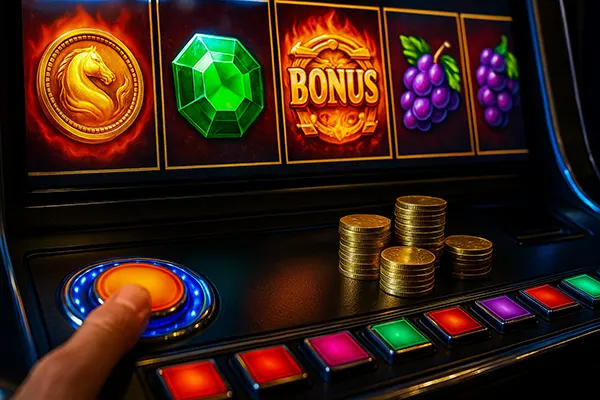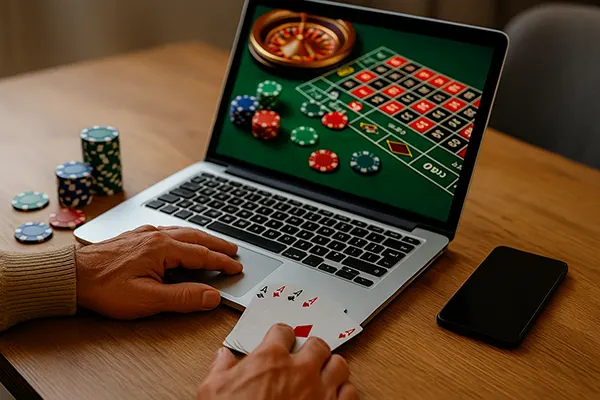
How Player Behaviour Changes Depending on the Time of Day: A Detailed Activity Analysis
Understanding how player behaviour evolves over different times of the day is crucial for analysts, game developers, and online casino operators. Patterns of activity often follow consistent rhythms influenced by psychological, social, and even biological factors. This article provides a comprehensive breakdown of these changes based on actual data trends and behavioural analysis as of 2025.
Morning Hours: A Time for Strategic and Relaxed Play
Morning gaming sessions are typically less intensive in terms of both frequency and risk. Players who engage during this period often seek short bursts of entertainment, frequently from mobile devices while commuting or during breaks at work. The main motives behind morning play are relaxation and a need to momentarily disconnect from daily responsibilities.
Data from 2025 shows that slot games and instant-win titles dominate player preferences in the morning hours. These games require minimal commitment and provide quick outcomes. The average session duration is relatively short—between 7 and 15 minutes—reflecting players’ limited time and lower engagement levels during these hours.
Additionally, morning players are more likely to display cautious behaviour in terms of budgeting and stake amounts. Many limit their spending to small fixed amounts, often using daily bonuses or free spin offers to maximise entertainment without additional deposits. This suggests a pattern of calculated and non-impulsive play early in the day.
Player Demographics and Behavioural Traits in the Morning
The majority of morning players are in the 30–45 age group, balancing personal and professional responsibilities. These users tend to avoid high-risk strategies and prefer familiar titles. They also show a strong tendency to engage with loyalty programmes or daily login bonuses.
Psychologically, the morning crowd often plays to alleviate mild stress or as part of a routine. It’s a structured form of entertainment rather than an impulsive activity. This makes them less responsive to real-time promotions or sudden gameplay events compared to evening users.
Finally, behavioural consistency is high. Players active in the morning typically follow the same routine across multiple days, making this audience segment particularly predictable for retention strategies.
Afternoon Dynamics: Rising Engagement and Increased Competition
As the day progresses into the afternoon, the nature of player activity begins to shift. There’s an uptick in overall session duration, and users become more exploratory in their gameplay. This is particularly evident during lunch hours and just after typical office schedules.
In the 2025 data sample, mobile play still dominates, but desktop access increases significantly—particularly among users working from home. The types of games also diversify. Strategy-based card games and table games such as blackjack and roulette see increased activity, suggesting a transition to more calculated risk-taking behaviour.
The average bet size during this period also rises slightly. Players appear more inclined to take small but more frequent risks. Many of these afternoon sessions are accompanied by multitasking activities, such as listening to music or browsing social media while playing.
Social and Environmental Influences in the Afternoon
Environmental factors such as workplace stress or social downtime contribute to the afternoon behaviour spike. Players often engage with games as a form of distraction or mental break. Real-time chat features and multiplayer modes also gain traction, indicating an increase in social interactions.
There is also a noticeable change in bonus activation patterns. Afternoon players respond more actively to time-limited offers or promotional events, especially if these are highlighted through push notifications or in-game popups.
Seasonal effects are also more pronounced in the afternoon. For instance, during colder months, afternoon engagement rates increase due to reduced outdoor activity, especially in European markets. This creates new windows for marketing and event planning.

Evening and Night-Time: Peak of Risk and Reward
The most intense and prolonged gaming sessions occur in the evening and late-night hours. After 8 PM, there is a clear spike in user logins and bet volumes. This is the prime time for both recreational and high-stakes players who allocate this part of the day to focused gameplay.
Games involving progressive jackpots, live dealers, and high RTP rates attract the most attention during these hours. Evening players are generally more emotionally invested and susceptible to chasing losses or increasing stakes after a win. This is why responsible gaming tools—such as time and spend limits—play a vital role during night-time sessions.
Data from 2025 suggests that session lengths often exceed 30–45 minutes in the evening, with multiple deposits being made more frequently than in any other time frame. This period also sees an increase in VIP-level player activity and engagement with tournaments or seasonal events.
Psychological Patterns During Night-Time Play
Night-time players are more prone to impulsive behaviour. Fatigue, alcohol consumption, or social isolation can all influence decision-making processes, leading to erratic betting patterns. This has been confirmed by tracking cash-out behaviour and bonus usage.
Players often seek high-adrenaline experiences at night, such as live casino games or high-volatility slots. These players report stronger emotional highs and lows, which in turn affects retention and loyalty metrics for operators.
Lastly, helpdesk and support teams also observe a spike in user queries and complaints during this period. This reflects the higher intensity and emotional involvement of users, indicating a need for enhanced player support and mental health resources during these critical hours.





